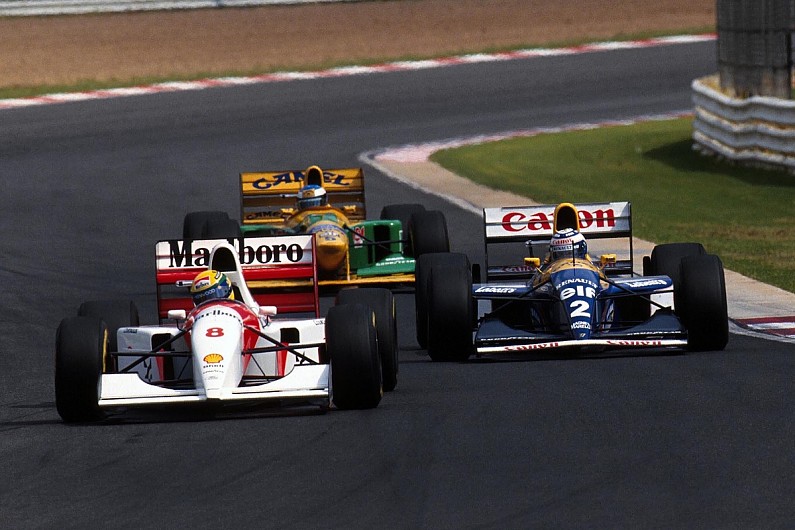It is notoriously difficult to rank Formula 1 drivers. The difference in machinery, competitiveness of the era and context of the times makes direct comparison impossible.
But it is possible to pick a selection of the best, each excelling in different ways at different times to illustrate the depth and range of talent that F1 drivers past and present have embodied. From Michael Schumacher’s domination to Niki Lauda’s sheer force of will to succeed, these are the best drivers to have graced F1 across its history.
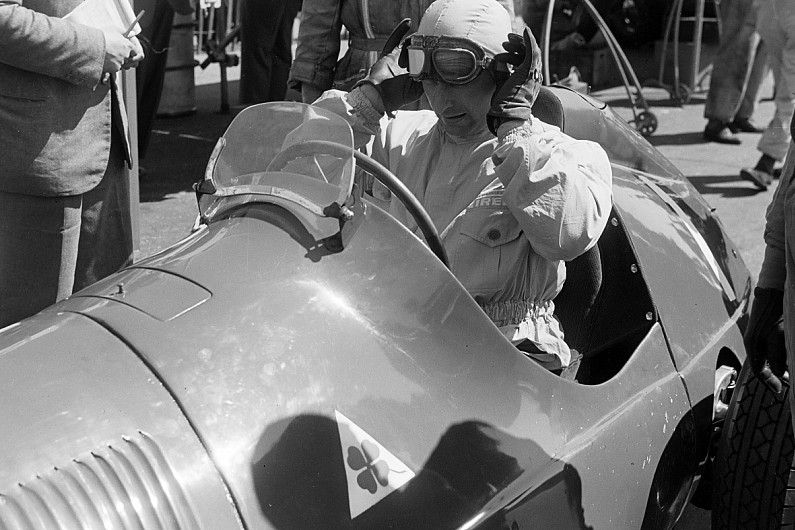
Juan Manuel Fangio – the maestro
World championships: 5
Race wins: 24
Pole positions: 29
Fastest laps: 23
The facts speak for themselves when it comes to Juan Manuel Fangio’s F1 career.
Five titles in seven years, achieved with four different teams, is a particularly outstanding feat, and it would be almost half a century until another driver won five championships – crucially, at nowhere near Fangio’s rate of victories. 24 wins from 51 races – a whopping 47 percent of championship races entered won – remains remarkable, as does 48 front row starts in those 51 races.
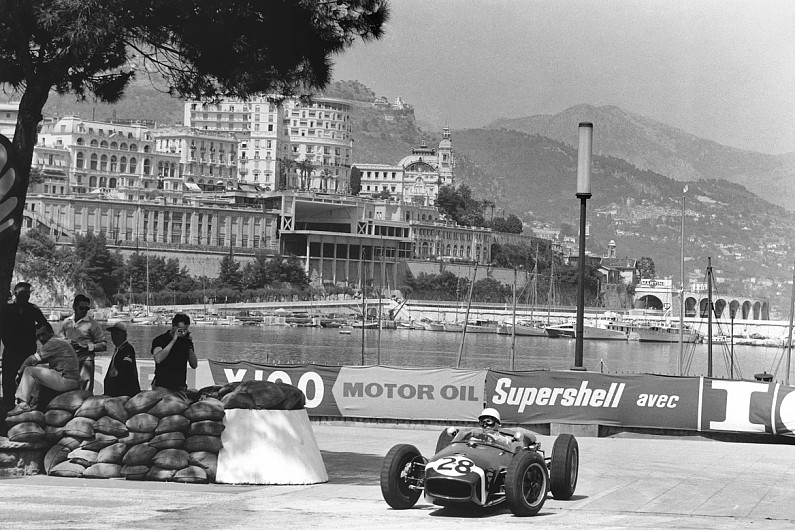
Stirling Moss – the best to never win a championship
World championships: 0
Race wins: 16
Pole positions: 16
Fastest laps: 19
It is perhaps one of motorsport’s greatest travesties that Stirling Moss never achieved an F1 title.
For four consecutive years Moss finished second in the championship, and in 1957 he missed out to Mike Hawthorn by a single point. Arguably, the answer to why he could never eclipse his rivals in the points standings lies in his all-or-nothing mentality. Moss did not play it safe – he was fighting for the win and had little interest in settling for less just to ensure he brought home some points.
An accident at the 1962 Glover Trophy at Goodwood left Moss in a coma for a month and encouraged him into an early retirement. Without that, the chances are that there would be even more evidence of his greatness.
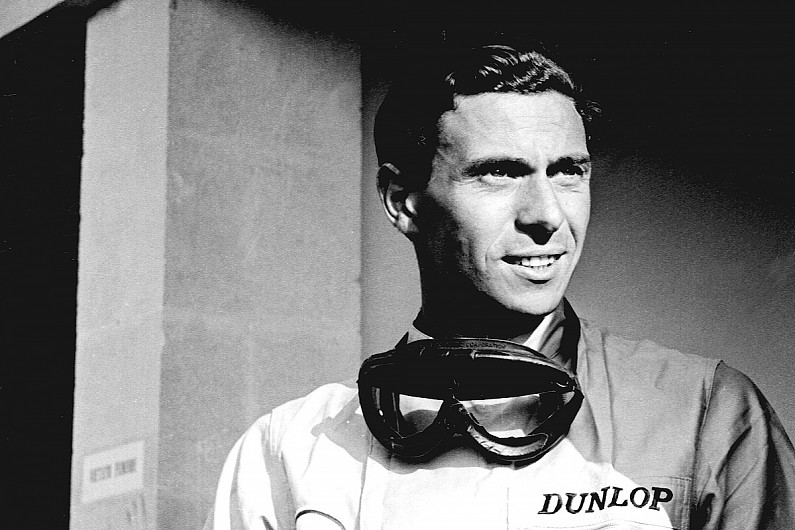
Jim Clark – the reluctant hero
World championships: 2
Race wins: 25
Pole positions: 33
Fastest laps: 28
The last real amateur racer, competing purely for the joy of it, Jim Clark shunned the limelight and was only interested in winning. From 1962-65, the Scottish ace was only beaten when he encountered mechanical issues and at the time of his death in 1968 – tragically during an F2 race at Hockenheim – he held the record for the most race wins.
An unrivalled talent, Clark was eight miles clear of the nearest competitor in the torrential rain at Spa in 1963, highlighting the bravery of a driver racing in the most dangerous period of motorsport’s history.
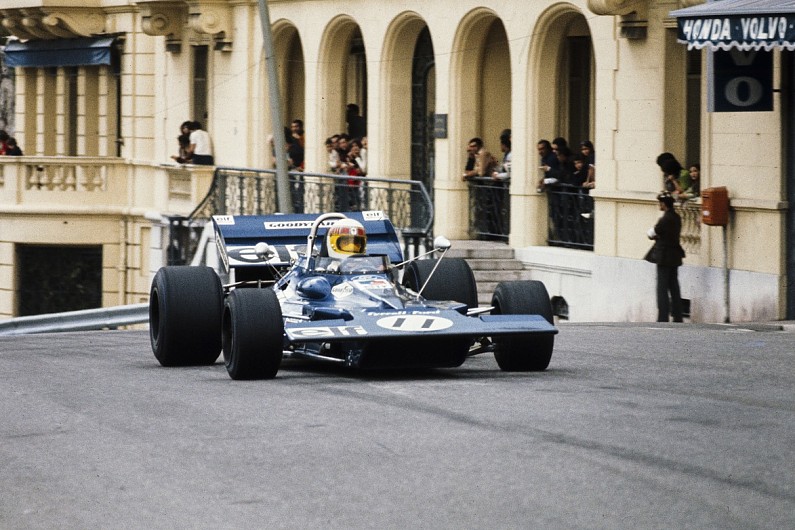
Jackie Stewart – the safety pioneer
World championships: 3
Race wins: 27
Pole positions: 17
Fastest laps: 15
It might seem an intrinsic part of F1 today, but Jackie Stewart was one of the first drivers to prove that racers can, and should, strive for better safety standards. As a triple champion and dominant force in the sport, Stewart had the credibility needed to change the culture around safety in motorsport. After seeing too many of his friends and colleagues killed doing what they loved, Stewart was a key pioneer in the introduction of full-face helmets, seatbelts, travelling medical units, safety barriers, run-off areas and more.
Outside his quest for safety, Stewart was a prodigious talent on track and was the man to beat throughout his time on the grid, claiming three world titles with Ken Tyrrell’s eponymous team as the two formed an irrepressible double-act in the late 1960s and early 1970s.
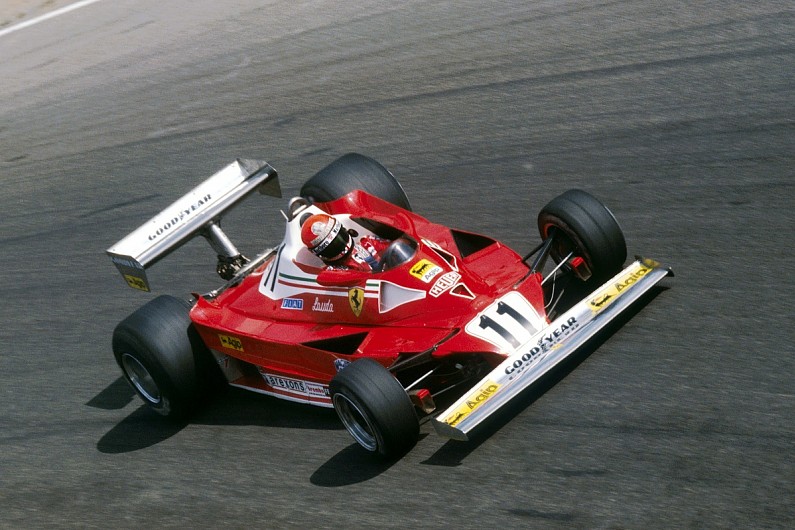
Niki Lauda – the force of nature
World championships: 3
Race wins: 25
Pole positions: 24
Fastest laps: 24
Nobody can doubt Niki Lauda’s talent, and the Austrian was already Ferrari’s hero for taking the team’s first title in a decade before his career-defining accident in 1976.
But ultimately it is his Nurburgring crash that Lauda is best remembered for or, more accurately, his recovery from the incident. With burns, broken bones and severe lung damage Lauda was not expected to survive, never mind make a improbable return to the cockpit a mere six weeks later, where he came 4th in the Italian Grand Prix. His recovery was described by doctors as being achieved by a ‘sheer force of will’.
Lauda was still in with a mathematical chance of winning the championship that year, but had pulled out of the extremely rainy Japanese Grand Prix on safety grounds. He came back to take his second title the year after, and then a third several years later after a short retirement. In his later years Lauda held a myriad of different positions in the paddock, latterly helping to guide Mercedes to its recent spell of dominance and was instrumental in bringing Lewis Hamilton to the team. More on that later…
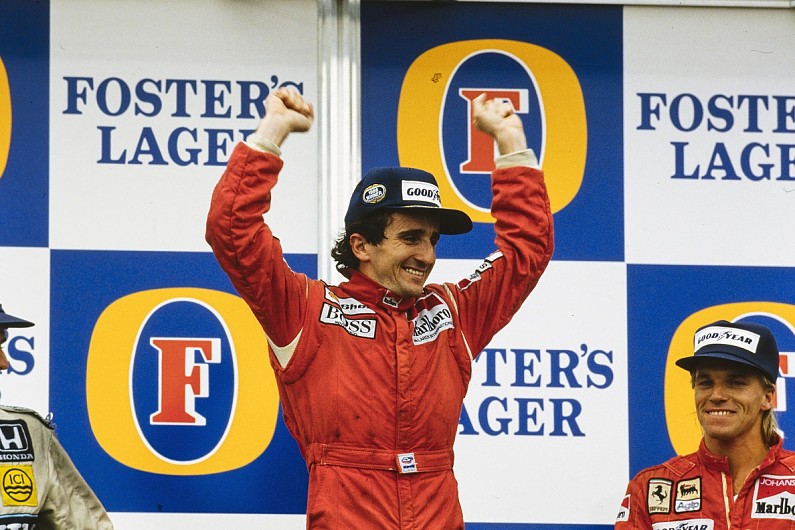
Alain Prost – The Professor
World championships: 4
Race wins: 51
Pole positions: 33
Fastest laps: 41
It was Alain Prost’s meticulous style that allowed him to go up against Senna – the bitter feud that he is best remembered for. His secret weapon was brainpower, and possessed a natural precision in his driving which allowed him to become France’s first world champion in 1985.
In 1987 he beat Jackie Stewart’s record of 27 wins and a year later McLaren won 15 out of 16 races across the season which is testament to both Prost and Senna’s skill. Prost remained at the top of his game until his retirement, taking his fourth and final title for Williams at 38 years old.
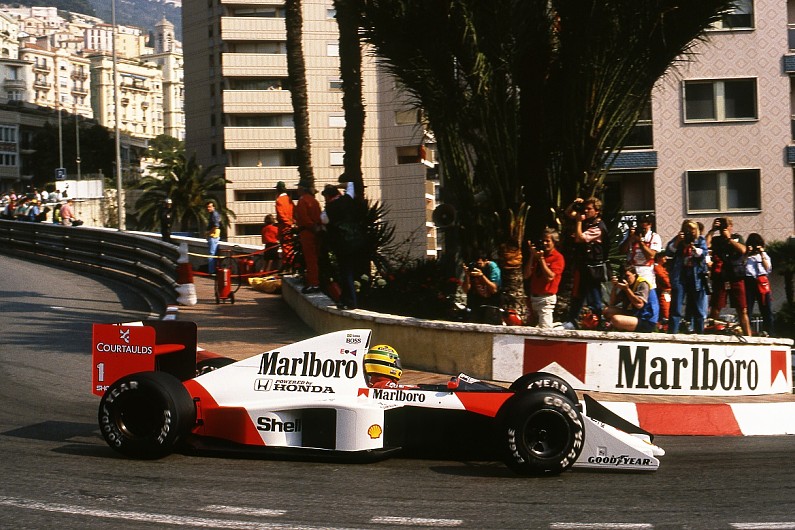
Ayrton Senna – the one we lost too soon
World championships: 3
Race wins: 41
Pole positions: 65
Fastest laps: 19
One of motorsport’s most legendary figures, Ayrton Senna remains the benchmark for raw talent and charisma.
His depth of commitment to a lap and his constant desire to push the boundaries for more has meant that Senna has a special place in the hearts of many motorsport fans. His three titles give a sense of what could have been had he not died at the San Marino Grand Prix in 1994. A combination of natural speed and restless ambition gave Senna an edge rarely seen.
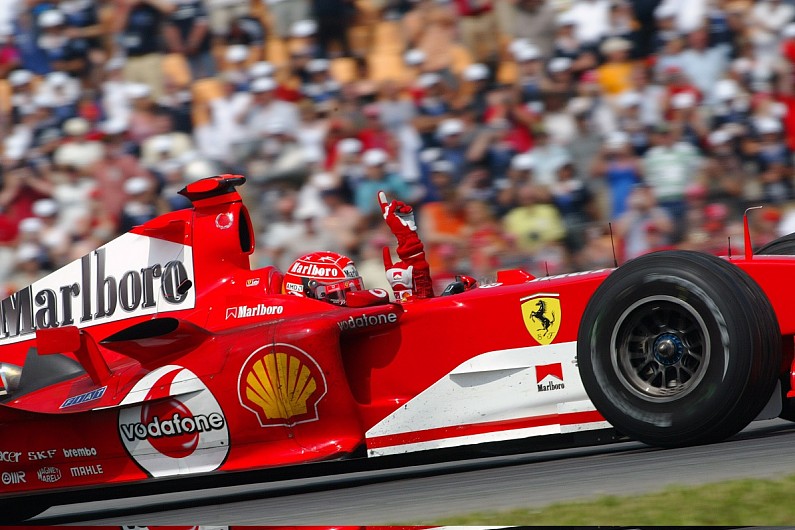
Michael Schumacher – the dominator
World championships: 7
Race wins: 91
Pole positions: 68
Fastest laps: 77
When considering the best F1 driver, Michael Schumacher immediately springs to mind. He has all the records to support him: the most titles, the most wins and the most fastest laps. Having forged almost a decade of sheer dominance, Schumacher took five consecutive titles between 2000 and 2004.
A combination of dedication and passion – of course, alongside raw talent – allowed Schumacher and Ferrari a period of superiority unlike anything seen in F1 before. While his methods used to assert his dominance were sometimes controversial, Schumacher’s uncompromising nature resulted in an impressive record of 91 wins and seven titles that remains unbeaten today.
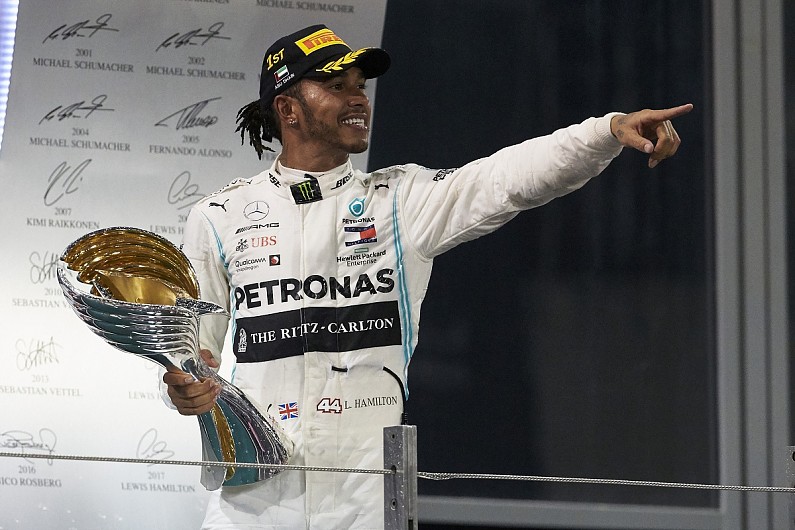
Lewis Hamilton – the current king of F1
World championships: 6
Race wins: 84
Pole positions: 88
Fastest laps: 47
Lewis Hamilton took the F1 world by storm when he burst onto the scene in 2007, immediately factoring in the fight for the championship and only losing out on the title by one point.
He became the youngest ever world champion in the following season, and what he has achieved in recent years has cemented his place among the pantheon of the true greats. Since the introduction of the turbo hybrid engine regulations in 2014, Hamilton and Mercedes have been all but unbeatable.
Five more titles later, and with a total of 84 wins, Hamilton is rapidly closing in on Schumacher to become the most successful F1 driver ever. On and off the track, the reigning world champion is a global celebrity, turning his hand to music and fashion as well as accepting the mantle as a role model to a generation of young people.
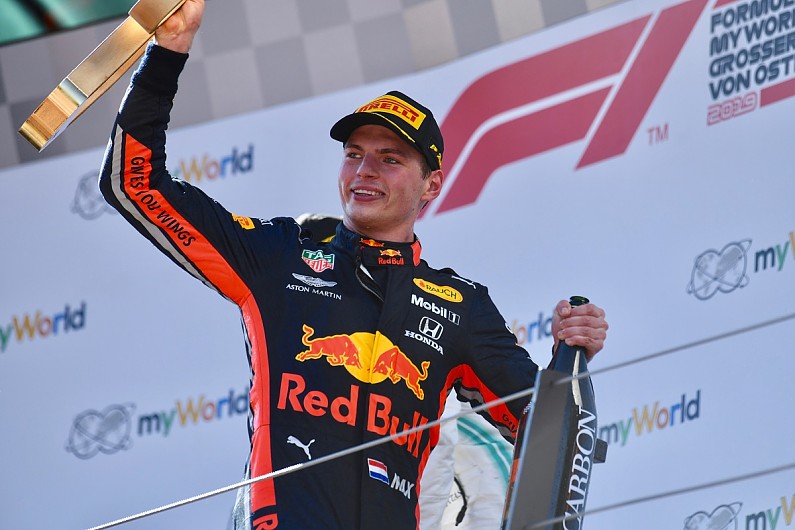
Max Verstappen – the young pretender
World championships: 0
Race wins: 8
Pole positions: 2
Fastest laps: 7
You could certainly argue that Max Verstappen has not yet earned the right to be included on a list such as this.
But the records already claimed by the 22-year-old make him, by age, one of the most successful drivers of all time – and he already has five years of F1 experience. Yet, youth is still very much on his side. He was the youngest ever driver to ascend to the top tier of single-seaters by a significant amount, aged only 17 years and 5 months, and a year later followed it up with the record for the youngest ever winner on his first outing with Red Bull.
The young Dutchman has shown the ruthlessness needed to succeed and has planted himself firmly as the number one driver in the team. Verstappen may have only won eight races but he has had the overwhelmingly dominant Mercedes to contend with, and it begs the question what he could do with at least more parity in his Red Bull car. Perhaps most frighteningly for his rivals, he’s still younger than many drivers when they make their debut, and could easily manage another 15 to 20 years in motorsport’s upper echelons.
